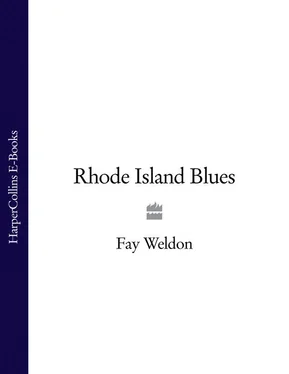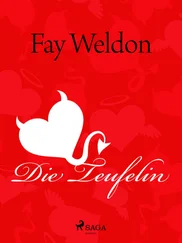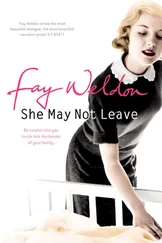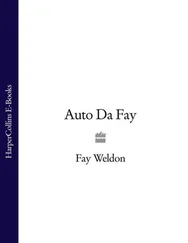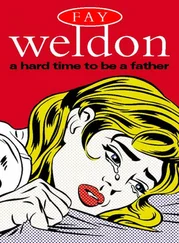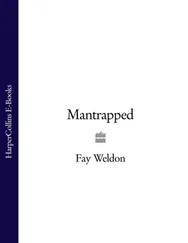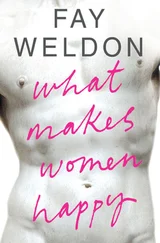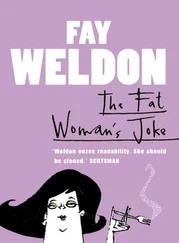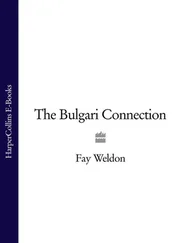So much of the time, at least when I was working, I rejoiced in my lack of family. I was not burdened as others were, by the guilt and obligations that seemed to go along with having parents, of whom one should be seeing more, or doing more for, desire and duty forever conflicting: the problems of children, ditto.
‘Just a grandmother in Connecticut’ seemed more than enough to me: far enough away, and of her own volition, to be out of the dreaded Christmas equation which afflicts so many these days: who goes where: which step-child to which step-house, which natural child to which parent, who is to take in the reproachful aged. ‘Oh, now she’s moved to Rhode Island,’ sounded as if she were not an invention, and static, but a living, moving in-touch person. And only a fraction nearer.
I had noticed, mind you, that if I were out of the editing suite for more than a couple of days I would begin to feel a little uneasy, a little unbolstered up, as it were, by my comparative aloneness in the world. Others had parents and aunts and children: their Easters and Passovers were well peopled: their Christmas lists were full of duty items, and duty, I had come to observe, can feel less onerous than freedom: the need to enjoy oneself can become oppressive. As my due to Christmas festivities I would visit my mother’s headstone at Golders Green crematorium, and consider the meaning of life and death for half an hour or so, until cold seeped through the soles of my boots. Not, I came to the conclusion fairly early on, that there were any conclusions to come to. There was the pleasure one got in getting things right, and a disappointment that one day one could no longer do so, it would be too late. I hoped nobody noticed this lack of affect in me. I put on a brave face. And if someone were needed to work on Christmas Day, I would always volunteer.
Between jobs, the cracks showed. They were beginning to yawn wide enough to fall into. Colleagues were all very well: they adored you until the show ended, and then failed to recognize you in the street the following week; there were drinks and jokes in the pub with proper friends, and dancing and sexual overtures in the club, and films to go to, and plays, and theatre, and books. Girlfriends were fine until they got married or solidly partnered and drifted off into their folies à deux or, with-children, à trois or quatre, when you, little by little, turned into the baby-sitter, and a haze of domestic triviality drooped like a dull cloud over the old association, and the friendship faded away to Christmas card level: and others you thought were permanent in your life you quarrelled with or they quarrelled with you, over ridiculous things, over borrowed clothes or hurt pride or imagined insults, and that was always upsetting, and there was no sex by which to re-register and consolidate former affections. As if female friendship wasn’t made to endure, was a false conceit: as if sexual relationships plus children was all that really kept people together, and God knew even that didn’t seem to be enough. Some tried lesbian togetherness but I never really fancied it: it was either too possessive or too bent on variance for comfort, and you’d still find yourself jumping when the phone rang. Is it him, is it her, what’s the difference? Oddly, the young gay men now around town in such numbers seemed to make more reliable and lasting friends than anyone else: true, their partners changed more frequently and the splits were accompanied by the most dreadful tantrums, but their laughs and their lamentations mixed agreeably: they created more of a noisy family feel than the females managed.
My usual answer to the unease about whither and whence, alone, was simply to begin another job. Directors waited for my services. I was as busy as I needed to be. Get back to the cutting room and the dissection of fantasy, and the possibility of an award, an Oscar even, if not this year, then next, and the comfort of one’s prestige in the film business, the working end of it at any rate, if not the Oscar Versace summit, and I’d be just fine again. But I could see I could do with an aunt. One sprung ready-made into my life, without the complications of a shared past. Alison!
If there was an aunt maybe there would be an uncle to go with her? But maybe not. The men in my family tended to fade out of sight in the bright glare of the female personalities with which they were confronted. Mind you, there was fresh blood in there somewhere: this Alison would have had a father. Who fathered an illegitimate baby back in the nineteen-thirties and then scarpered? Not anyone nice. But I assumed Felicity wanted me to go in search of her long-lost daughter, otherwise she wouldn’t have mentioned her. Would she?
The elderly woman in the Hermeés scarf and sensible shoes in the seat next to me called the steward. He arrived, obsequious, resentful and rubbing damp palms together. It is as difficult for Concorde to provide a more luxurious service than First Class on a regular flight as it is for First Class Regular to do much better than Club Class subsonic. There must be an end to the distinction between one grade of smoked salmon and the rest, the taste and texture of one rare globule of caviar and the next. The battle to justify the extra thousands spent by customers cannot be left to speed and convenience alone. There must be luxury enough to shame the opposition. Catering feels it too must do its best, but imagination fails. The staff just has to learn to bow yet lower, and it hurts, and it shows.
‘Last time I was on this blasted machine,’ said my neighbour, ‘there were shreds of real orange in the juice. I’ll swear this is condensed.’
The steward went forward and came back with the cardboard container to reassure her. ‘Nothing but the best of freshly squeezed real oranges,’ claimed the box. She refused to be reassured.
‘I have no proof the juice came out of that particular box,’ she said. The steward offered to provide witnesses. She declined the offer. The cast, as she called them, would only stick together and lie. ‘Why didn’t you just squeeze fresh oranges?’ she demanded. He said there was a space problem on Concorde. She said oranges, properly packed, wouldn’t necessarily take up more room than boxes. He said they would: oranges were round and boxes were square. So they wrangled on. The human race, even on Concorde, is in search of an occupation. The Mach meter showed 2.2. More than twice the speed of sound. The metal against which my arm rested became uncomfortably hot. I thought maybe the whole machine would melt. I expressed my worry to the steward. He felt the wall of the plane, and studying his once handsome face, grown soft from the habit of an unfelt politeness, and petulant from the obligation to justify, justify, justify, I thought I saw alarm writ there. As one does.
‘Oh it does that sometimes,’ he said. ‘If we overheat the pilot will cut back.’ Even as we spoke the Mach meter fell rapidly to 1.5 and the metal cooled almost instantaneously.
‘There you see,’ he said, triumphantly. The woman beside me snorted and fell asleep. I slept too and dreamed of Aunt Alison, who looked like one of the motherly types you see on packets of cake mixes. She folded me in her arms and said, ‘There, there.’ That was all but when I woke up there were tears on my cheeks.
The film had been unlocked, that was what had happened, why I had been sent for. A rare event. Young Olivia’s female live-in lover Georgia, slighted by Olivia’s claim that she was no lesbian but the mere victim of child-abuse at the hands of a female teacher, had made an unsuccessful bid to end her life, first e-mailing the news desks with her suicide note: she had been stomach-pumped in time. Georgia’s parents had not helped, joining in the media fray, accusing Olivia, our film’s gentle heroine, of seduction of their daughter, who had been all set to marry a parson. The PR panic was sufficient to infect the studio back in Hollywood. They flew over to sort things out, which only happened in real emergencies. Had they been able, they would have cut off my head and had my brain pickled and turned into some sort of memory bank unit, always accessible, but they couldn’t do that, so they had to pay the price of a Concorde ticket and have my body as well as my brain in the editing suite. They breathed down my neck and shuddered when Harry smoked, which he did more than usual for their benefit. ‘The Studio’ consisted of a sharp young man and a sharper young woman with big hair and a narrow tiny face. She had LA hips, which are wider than those you see skittering about in New York. Californians are built bigger, spreading into available space. Texas is not so far away, in perceptual reality.
Читать дальше
